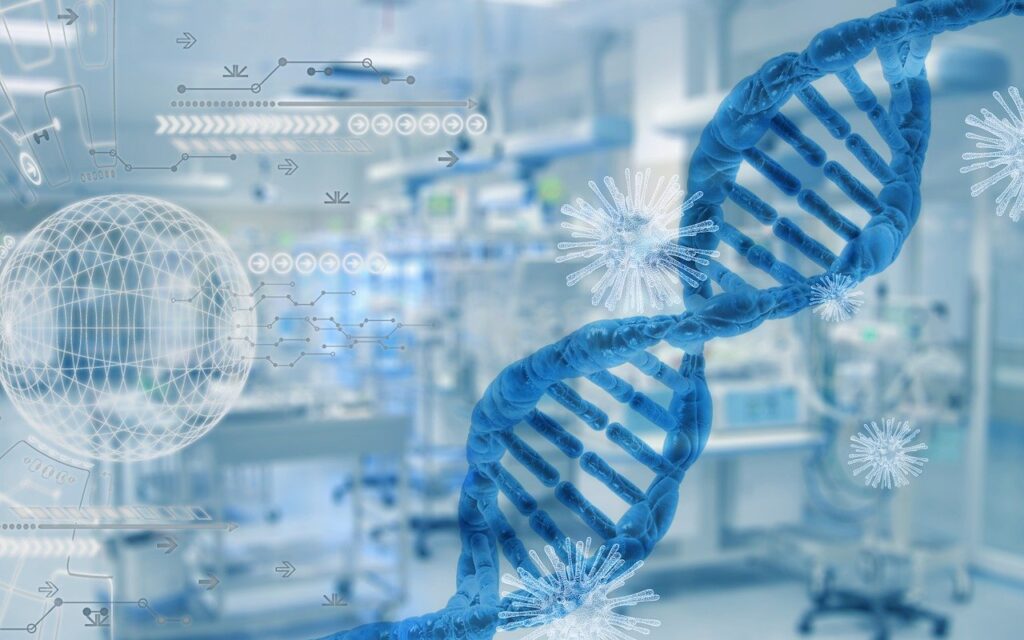Table of Contents
Introduction to the game-changing innovations in healthcare
Healthcare innovation has come a long way in the last few years, thanks to advancements in medical technology and increased investment in research and development. With breakthroughs across various healthcare domains, the future of medicine looks promising.
The adoption of connected devices
, such as wearables or Internet of Things (IoT) technology, has allowed patients to take more control over their health by monitoring symptoms, tracking medication schedules, and managing chronic conditions. Accessible data from these devices better informs doctors about patient health status, allowing for earlier intervention when necessary.
The deployment of telemedicine
is another significant advancement that allows people who live far away from hospitals or specialist clinics to access care remotely. Through video consults with physicians or remote diagnostic testing via digital technologies like mobile applications (apps), patients can receive quality care virtually anywhere. Moreover,
precision medicine
, uses tailored therapies developed through genetic testing is also on the rise in treating some diseases previously thought untreatable. This approach considers an individual’s specific genetics along with other factors including lifestyle habits while designing personalized treatment plans based on precise diagnosis reports.
Importance of technology adoption for improved patient outcomes
Technology adoption has become an integral part of healthcare operations in recent times. The use of technological advancements has not only improved the operational efficiency of healthcare providers, but it also has a profound impact on patient outcomes and overall health management.
Gone are those days when patients have to wait hours for medical consultation or diagnosis. Technology has revolutionized the way we approach healthcare by reducing waiting time, improving accessibility, enhancing diagnosis accuracy and facilitating personalized treatment options.
The integration of technology into clinical practices allows physicians and other care providers to deliver high-quality care more efficiently than ever before. Electronic Health Records (EHR), telemedicine applications, mobile health apps have been at the forefront in transforming healthcare delivery by making it easier for doctors to access important patient information online from anywhere anytime they need without any delay.
EHRs provide real-time information about a patient’s medical history, current medications, allergies and immunizations that can guide doctors in making accurate diagnoses and decisions regarding treatment plans while saving time on manual record-keeping tasks.
The increased adoption of digital technologies like remote monitoring sensors, wearable devices, smart pills etc., improve disease prevention measures . These devices help keep track of critical metrics such as heart rate, blood pressure levels which can signal potential problems early enough allowing preventive interventions that mitigate possible complications down the road.
In conclusion: technology is essential now more than ever before to drive change and innovation within our healthcare system towards improving quality outcomes for all.
The rise of telemedicine and virtual care options
One significant innovation that has transformed healthcare delivery in recent years is telemedicine. Many people live in remote areas or have mobility issues, making it difficult to access quality medical care. Telemedicine enables patients to connect with healthcare providers remotely, using technology such as video calls.
The convenience of telemedicine allows patients to save time and money on travel expenses while receiving the same high-quality healthcare services they would get during an in-person appointment. Besides, virtual appointments make it easier for physicians to monitor their patients regularly without requiring them to come into a physical office all the time.
In light of the COVID-19 pandemic, there has been a surge in demand for virtual care options worldwide. Healthcare professionals are encouraged to minimize face-to-face contact where possible, limiting exposure risks by utilizing remote consultations instead of routine visits when appropriate.
For instance: Patients who have chronic conditions like diabetes or hypertension can now receive regular check-ins via phone call or video visit rather than having weekly appointments at local clinics or hospitals. Virtual appointments also reduce waiting times significantly as health practitioners can consult with several people simultaneously from different locations across regions and countries.
Advancements in personalized medicine through precision diagnostics
The future of healthcare is being revolutionized by advancements in personalized medicine. Thanks to breakthroughs in precision diagnostics, healthcare providers can now offer tailored treatments and therapies that are more effective than ever before. These innovations allow doctors to better understand the unique genetic makeup of individuals and how their bodies may react differently to certain diseases or medications.
Precision diagnostics involves analyzing an individual’s genes, proteins, and other biomarkers to develop a more targeted approach to treatment. This process allows healthcare professionals to identify specific gene mutations or protein markers associated with particular illnesses. With this information, they can create customized treatment plans that take into account each patient’s unique characteristics.
In addition to improving treatment efficacy, precision diagnostics also has the potential to reduce unnecessary medical procedures and costs for patients. By identifying genetic disorders early on through advanced screening techniques, for example, doctors can intervene sooner and prevent more serious health issues from developing down the line.
One significant area where precision medicine is making a difference is cancer treatment. Through genomic testing of tumors or blood samples from cancer patients, clinicians can pinpoint specific molecular abnormalities responsible for tumor growth – information which then helps guide therapy selection based on the mechanisms driving each patient’s cancer cells while minimizing side effects.
“Precision medicine has allowed us not only greater understanding of cancers but [also] countless other chronic conditions,” says Dr. Raju Raval at Stanford Health Care.”
The future looks promising when it comes toward advancing new technologies within personalized medicine as we move towards even earlier disease diagnosis along with targeted therapies.” -Dr.Matt Watson at UCSF Medical Center
Artificial intelligence, machine learning, and predictive analytics in healthcare
Artificial intelligence (AI), machine learning, and predictive analytics are transforming the healthcare industry by enabling medical professionals to provide more personalized care. AI systems can analyze vast amounts of data, identify patterns, and make predictions that would be difficult for humans to detect.
Machine learning is a type of artificial intelligence that allows computers to learn from data without being explicitly programmed. In healthcare, this technology can help predict patient outcomes based on their medical history and other variables. For example, it can help determine which medications will work best for individual patients or identify those at high risk for specific diseases so that preventative strategies can be implemented.
Predictive analytics uses algorithms and machine learning models to analyze large datasets in order to forecast future events or trends with a high degree of accuracy. This technology has numerous applications in healthcare such as predicting readmissions rates or identifying patients who are most likely to benefit from clinical trials.
A few examples:
- An algorithm developed by physicians at Stanford University uses deep learning tools to diagnose skin cancer with 96% accuracy – better than human dermatologists!
- Machines now assist oncologists in sorting through thousands of pages of new research articles every week aiming at developing new drugs treating cancer faster
The use of AI also extends beyond analyzing patient data and treatment decisions – it also plays an important role in streamlining administrative tasks like billing processes or scheduling appointments thereby freeing up time for physicians while saving costs too.
As we look towards the future, we see tremendous potential for AI-driven innovation not only improving health outcomes but also revolutionizing how medical professionals deliver care around the world!
The role of big data management and interoperability in transforming healthcare delivery
Healthcare generates a massive amount of data every day. Electronic health records (EHRs), medical imaging, wearables, and more are all sources of valuable information that can be used to improve patient outcomes.
However, the challenge is turning that data into actionable insights. Big data management refers to the process of collecting, storing, analyzing, and sharing large datasets efficiently. In the context of healthcare delivery transformation, this involves breaking down silos between different systems and creating a unified architecture for managing patient-related information.
Interoperability plays a crucial role in enabling this seamless exchange of information across disparate platforms. Interoperable systems can communicate with each other regardless if they come from different vendors or use incompatible protocols.
The benefits of improved big data management and interoperability in healthcare are numerous:
– Enhanced care coordination across different providers
– Improved clinical decision-making through predictive analytics
– Better monitoring of population health trends
– Increased efficiency and reduced errors by eliminating redundant tests or treatments
– Facilitation of clinical research studies
This enhanced connectivity empowers patients as well as clinicians by providing access to relevant medical history instantly available at their fingertips which allows them prompt diagnosis thus better treatment plans.
In conclusion; healthcare providers should focus on implementing efficient infrastructure capable & secure enough for all entities involved within it’s environment.




